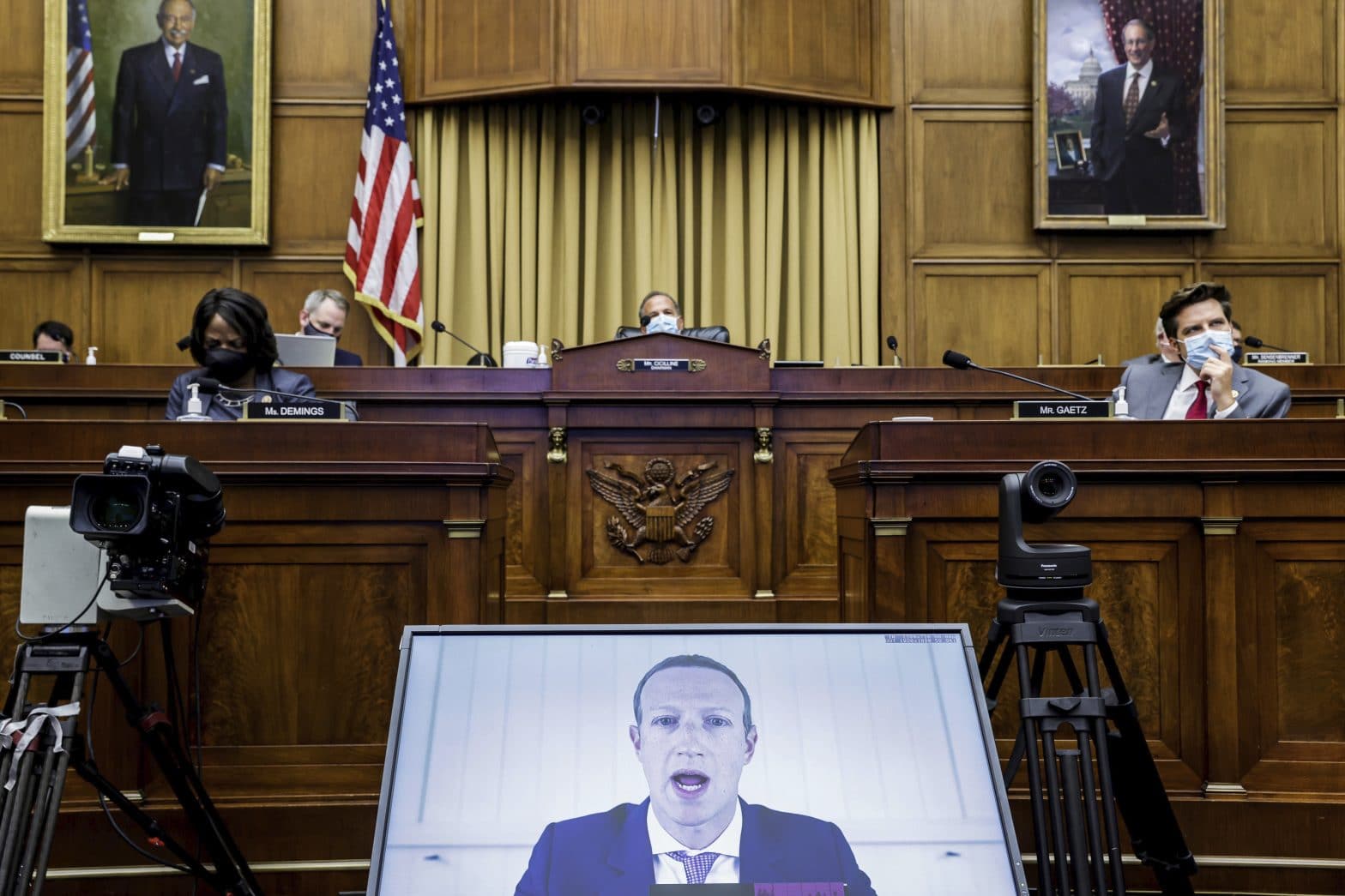Big Tech Chief Executives Defend Against Antitrust Accusations in Congress

WASHINGTON — The chief executives of the biggest computer and Internet companies faced tough questioning in Congress Wednesday on whether they have too much control over the U.S. market.
Some lawmakers want to break up their dominance under federal antitrust laws.
Amazon, Apple, Facebook and Google are the “emperors of the online economy,” said Rep. David Cicilline, D-R.I., chairman of the House Judiciary Committee’s antitrust panel.
The result is that consumers are paying high prices and have little control over the quality of their online purchases, said Cicilline.
“Simply put, they have too much power,” he said about the tech giants.
The chief executives said their marketing and growth represent efforts to stay competitive in a tough industry.
Cicilline and some other lawmakers were unconvinced. They suggested their competitiveness has gone too far, giving them the discretion to drive smaller companies out of business, censor conservative political messages and get away with allowing fraudsters to operate through their Internet platforms.
Some of the criticism against Facebook Chief Executive Mark Zuckerberg focused on his company’s $1 billion acquisition in 2012 of Instagram, a photo and video sharing social networking service.
It became a Facebook competitor after it was launched in October 2010.
Some lawmakers want to break Instagram off from Facebook through antitrust laws. Instagram has more than a billion monthly users worldwide.
They asked Zuckerberg about internal company emails in 2012 in which he described Instagram as potentially “very disruptive” to Facebook. The company’s chief financial officer raised the possibility of neutralizing the potential competitor in a separate email.
Zuckerberg replied by acknowledging that was what he had in mind. Shortly afterward, Facebook acquired Instagram.
Zuckerberg told the congressional committee his Instagram acquisition was approved by the Federal Trade Commission. He described it as a routine business venture.
“It was not a guarantee that Instagram was going to succeed,” Zuckerberg said.
A top supporter for the companies was Rep. James Sensenbrenner, R-Wis., who told other members of the subcommittee on antitrust, commercial, and administrative law that “being big is not inherently bad.”
He added, ”Quite the opposite. In America you should be rewarded for success.”
However, fellow Republican Rep. Jim Jordan of Ohio accused Google and Facebook of censoring conservative messages, including statements from President Donald Trump intended to advance his re-election campaign.
“I’ll just cut to the chase, Big Tech’s out to get conservatives,” Jordan said.
He asked Sundar Pichai, chief executive of Alphabet Inc., which owns Google, for assurances his company would not show favoritism against Trump during the 2020 federal election.
“Any work we do around elections is non-partisan,” Pichai replied.
He also said Google’s removal of messages from the Internet is intended to protect users against fraud and deception, such as fake medical cures and financial scams. Google identifies most problematic ads, photos or messages through a computer algorithm.
“There’s nothing in the algorithm that has anything to do with political ideology,” Pichai said.
Amazon Chief Executive Jeff Bezos endured questions about whether his company displayed products on its Internet market site to increase its revenue rather than present consumers with their best options.
Bezos denied the accusation. He also asked lawmakers to consider the benefit Amazon has brought to the U.S. economy, which included “hundreds of thousands of jobs across 42 states.”
Apple Chief Executive Tim Cook was asked about whether he limited competition among Internet app firms by unfairly restricting access to his company’s computers.
Cook replied that Apple sought only to ensure quality among apps the company sells consumers. He also said the number of apps sold on Apple Store has grown tremendously in recent years.
“We operate the App Store to help developers, not hurt them,” Cook said.
He also said, “If Apple is a gatekeeper, what we’ve done is open the gate wider.”






















